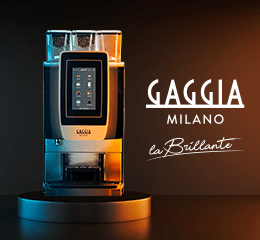MILAN – In recent years, consumers have become more aware and selective. The coffee market is on the rise with an estimated value of US$132.13 billion this year, projected to reach US$166.39 billion by 2029, growing at a compound annual growth rate (CAGR) of 4.72% during this period, according to a recent survey by the international research firm Mordor Intelligence.
Several trends have emerged, capturing the market’s attention. These include a growing coffee culture among younger generations, an increased demand for coffee shops as preferred spaces for socializing and working, and heightened awareness of health benefits. Consumers are also concerned about quality and the socio-environmental impact of coffee production.
Notably, the demand for traditional drinks like lattes, espressos, and cappuccinos has shifted. Consumers are now more focused on finding unique profiles and tasting experiences, exploring diverse flavors.
“Coffee with notes of chocolate or caramel and nuts, which serve as a foundation for other aromas and notes, are more appreciated and flavorful. Among the most valued secondary notes is floral, particularly prominent in Brazilian coffee. In contrast, citrus and fermented notes are currently less sought after,” says Simão Pedro de Lima, Executive President of Expocacer.
According to Simão, the new generation of consumers aged 25 to 30 prefers softer coffee with lasting flavors and chocolate undertones. “A key characteristic of these young consumers is their interest in how coffee is produced, particularly in relation to social and environmental sustainability. Traceable coffee is especially appealing to them. Their preference order differs from older generations; they prioritize production methods and quality first, followed by price, whereas ‘traditional‘ consumers prioritize price, quality, and origin.”
The Mordor Intelligence study also highlights a trend towards certified coffee products, which help ensure the credibility of the beverage. Consumers are increasingly demanding premium products that emphasize uniqueness. Technological innovations, safety measures, and machine-based food processing units are expected to significantly influence coffee demand in the coming years.
According to Expocacer, the most frequent questions consumers have when buying coffee relate to quality, consistency of delivery, pricing, origin, and production methods.
“Our coffee carries various certifications, such as regenerative, low carbon, and organic, in addition to offering traceability, so consumers know where these beans come from and who produced them. The cooperative exports coffee to over 35 countries, with the main markets being the United States, France, Belgium, Japan, Italy, the United Kingdom, Spain, and South Korea,” says Ítalo Henrique, Commercial Director of Expocacer.
The increasing awareness of coffee’s health benefits is another important aspect. According to the International Coffee Organization (ICO), more than ever before, consumer behavior has increasingly been influenced by health and nutrition concerns.
A recent survey by the Institute for Scientific Information on Coffee (ISIC) found that global online searches for “health benefits of drinking coffee” have surged by 650% in recent years.
“Coffee producers and companies must adapt to these demands and trends to remain competitive in the market, always with an eye on the future,” concludes Ítalo Henrique.
About Expocacer
Established in 1993 and located in Patrocínio/MG, the Cooperativa dos Cafeicultores do
Cerrado (Expocacer) promotes coffee quality and the work of its members in Brazil and around the world through significant socio-environmental initiatives and contributions to the regional economy. The cooperative’s infrastructure includes two warehouses with a capacity for over 1 million bags.
Currently, they serve 680 producers, exporting to more than 35 countries across 5 continents.












